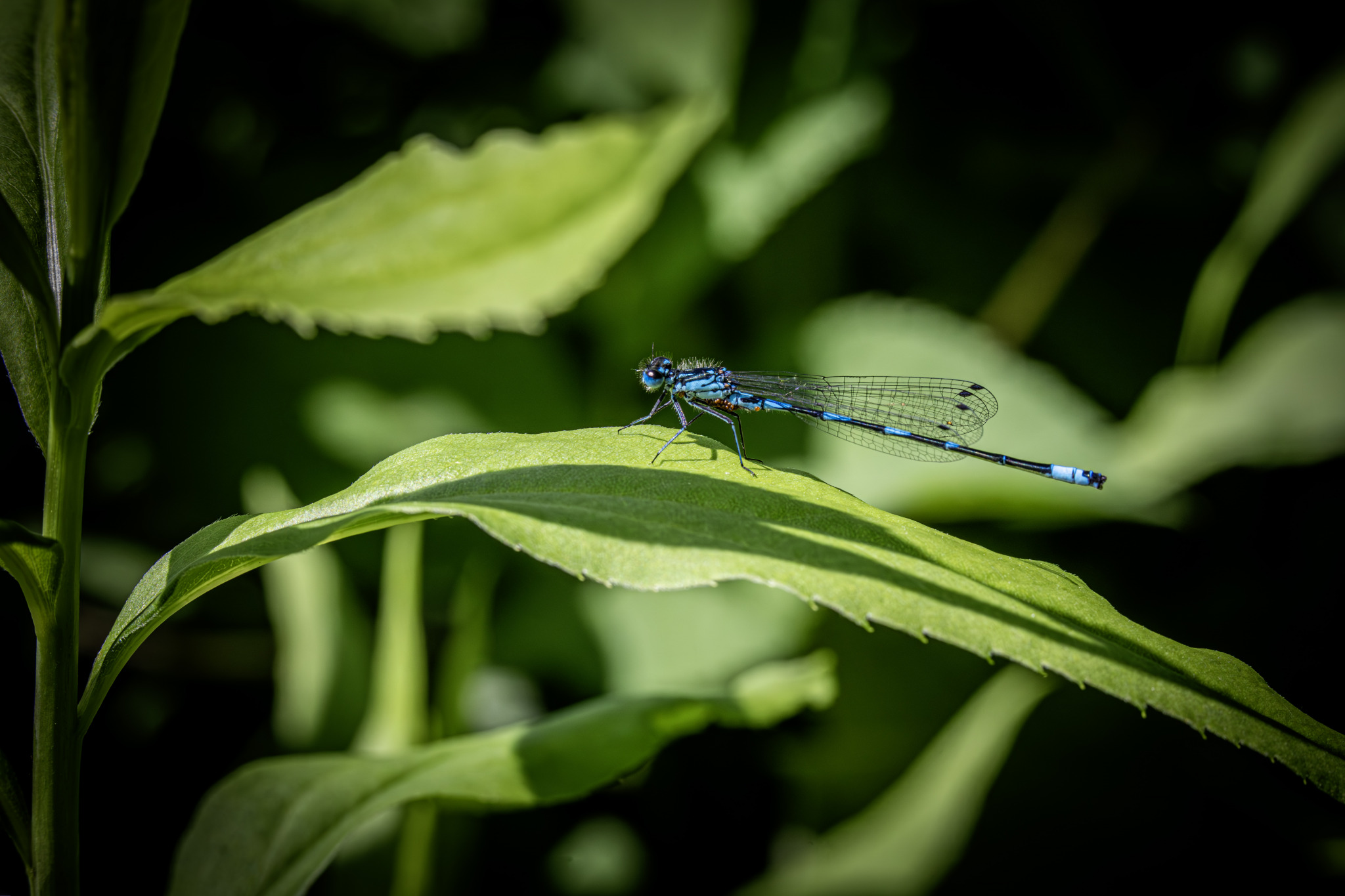- Genus Coenagrion: Coenagrion is a genus of damselflies commonly found in Europe, Asia, and parts of Africa. They are small to medium-sized damselflies with slender bodies and delicate wings. The genus includes several species known as Bluets due to the blue coloration of the males, though females and immature individuals may exhibit different coloration.
- Description: Male Eurasian Bluets typically have metallic blue or bluish-green coloration on their thorax and abdomen, often with black markings. Their wings may be clear or lightly tinted. Females and immature individuals of Eurasian Bluets often have more subdued coloration, with shades of green, brown, or gray.
- Habitat: Eurasian Bluets are commonly found near still or slow-moving freshwater habitats such as ponds, lakes, streams, and marshes. They require aquatic vegetation for breeding and are often seen perching on emergent vegetation or flying low over the water surface.
- Behavior: Like other damselflies, Eurasian Bluets are agile flyers and skilled hunters, preying on small flying insects such as mosquitoes, midges, and flies. They have a characteristic fluttering flight pattern and can often be observed darting among the vegetation near water bodies.
- Reproduction: Eurasian Bluets undergo incomplete metamorphosis, with eggs laid in water and aquatic nymphs hatching from them. The nymphs are aquatic and go through several stages of development before emerging from the water as adult damselflies.
- Conservation: While Eurasian Bluets are generally not considered threatened, they, like many other aquatic insects, may be affected by habitat loss, pollution, and climate change. Conservation efforts aimed at preserving freshwater habitats and maintaining water quality are important for the continued survival of Eurasian Bluets and other damselfly species.
Overall, Eurasian Bluets are beautiful and fascinating insects that play important roles in freshwater ecosystems as both predators and indicators of environmental health.
Visited 289 times, 7 visit(s) today
Views: 485
Subscribe to the newsletter:
